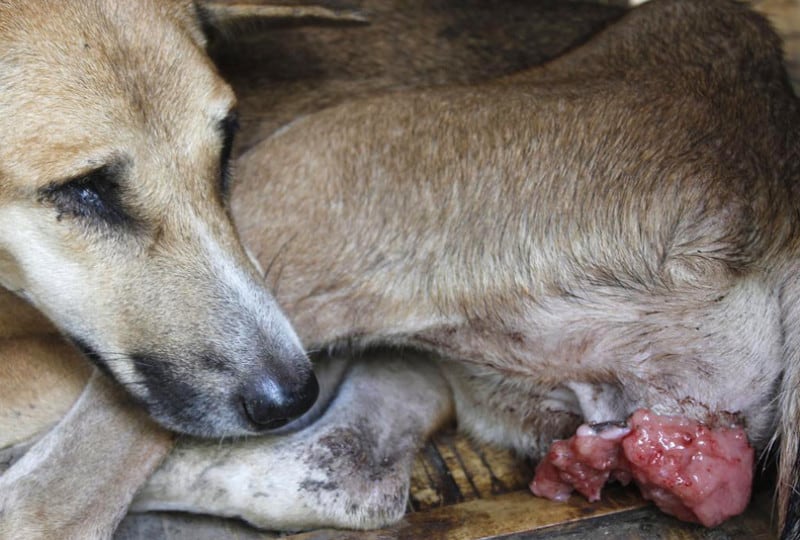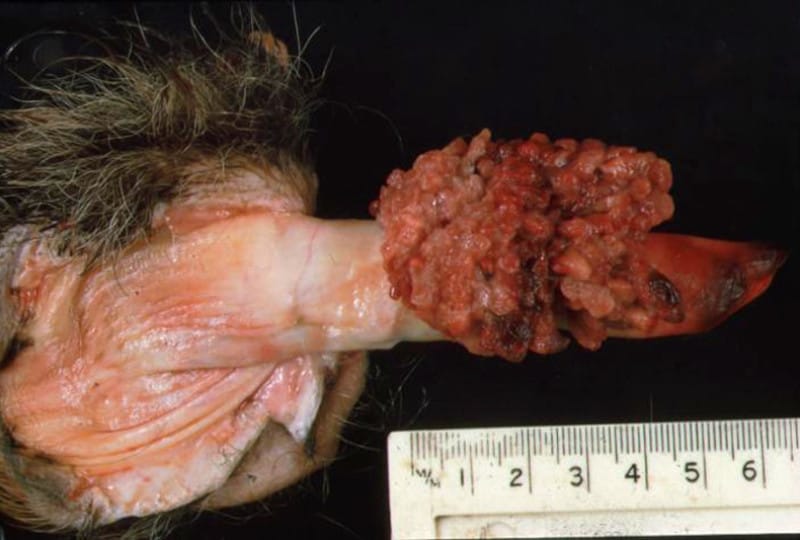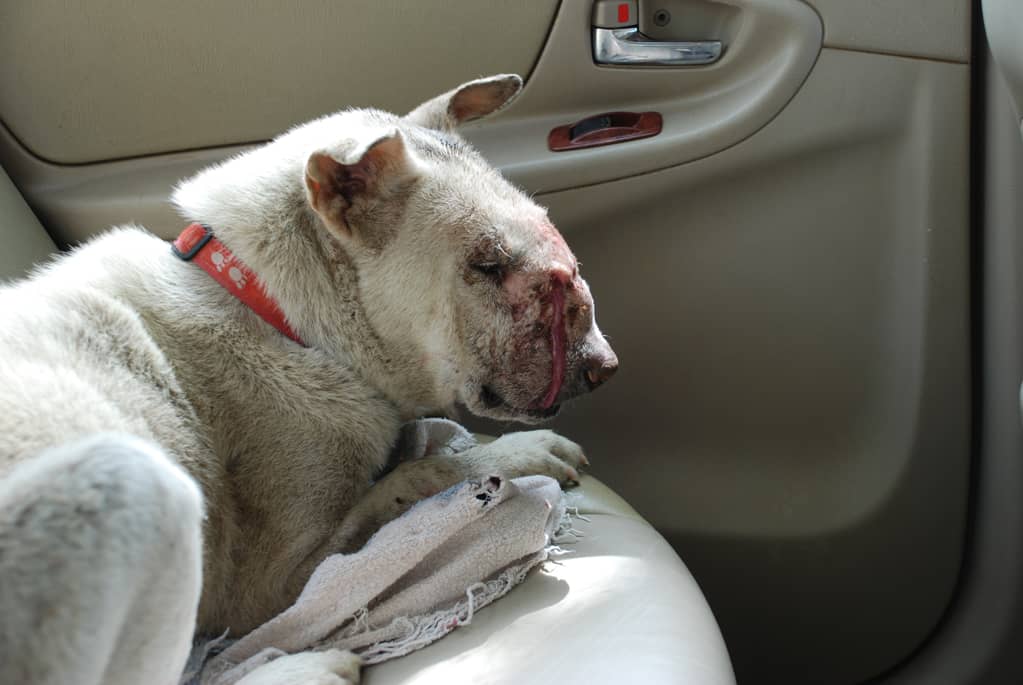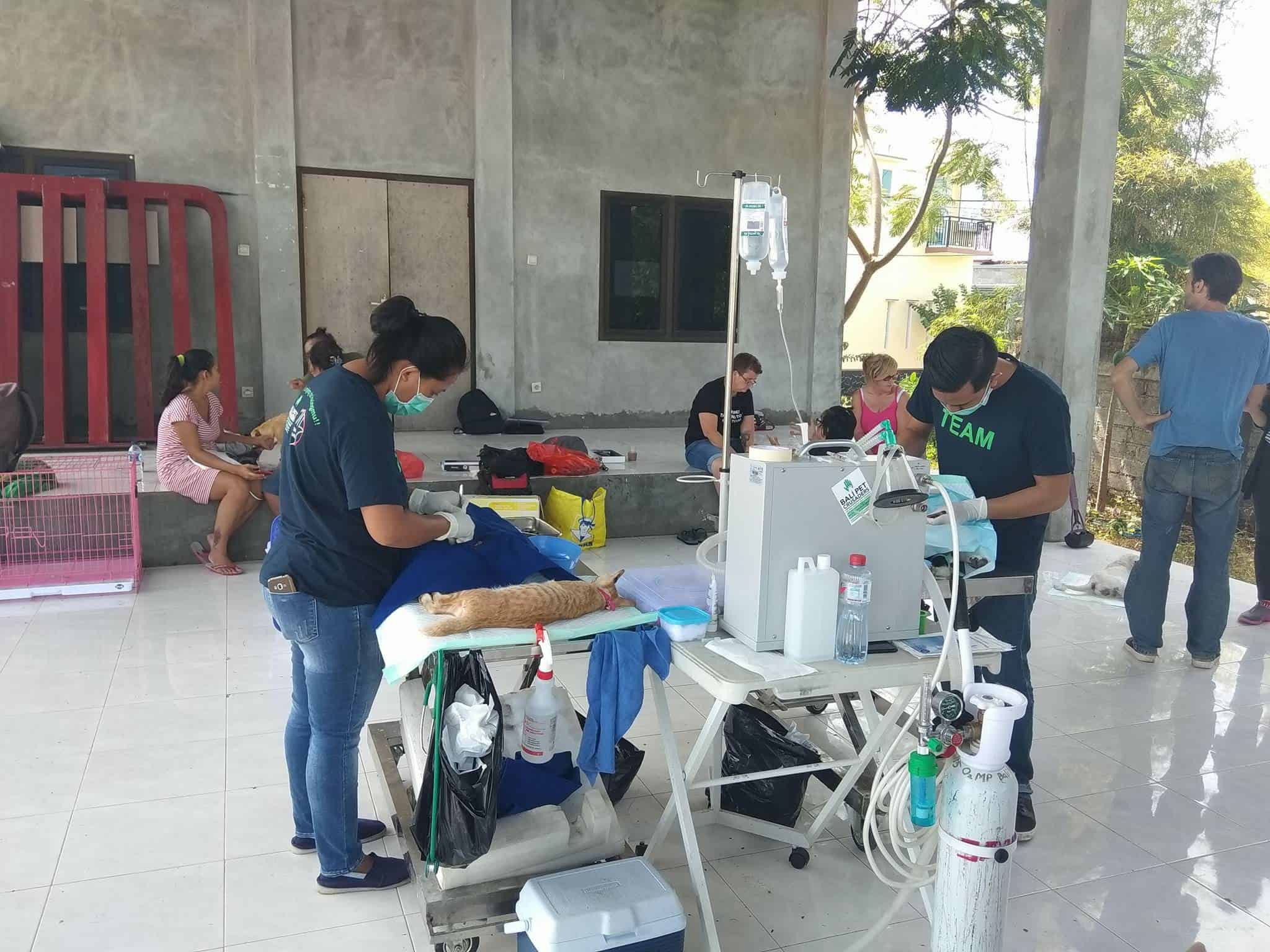We are 100% for sterilisation!
Why? Because we don’t want to ‘rescue’. We want all the animals that arrive on this earth to be wanted and not discarded like trash. Some people hesitate to sterilise their pets, fearing that it will be painful. Sometimes, they wonder what the actual benefits are. We’re here to help clear up some of the confusion.
LET’S TALK ABOUT SEX AND PENIS AND VAGINA CANCER AKA TVT
We’re not going to ‘beat around the bush’ about this topic because, for us here at Mission Paws’ible, the number of vagina and penis cancer cases are at crazy highs, and it’s avoidable if your pets, free-roaming or otherwise, are sterilised.
• It’s a fact.
• It’s infecting 1,000s of dogs on this tiny island.
• It’s causing horrendously painful deaths or treatment plans that are not only costly to rescuers (or owners) but diabolical to the health and well-being of your pet. It is called TVT, and you need to know about it!
TVT Cancer Canine Transmissible Venereal Tumour (CTVT), also known as Transmissible Venereal Tumour (TVT) or Sticker’s Sarcoma, is a transmissible cancer that affects dogs. CTVT is spread by transferring living cancer cells between dogs, usually during mating.



TVT Cancer is a preventable illness that can be avoided through sterilisation.
TVT SYMPTOMS AND TYPES
You may observe a red, tumorous mass bulging out of the surface membrane of the vagina or on the penis. The tissue mass may break off upon manipulation. Blood drops may also be observed dripping from the vagina or penile foreskin. The dog will usually lick the affected area with frequency.
CAUSES
This condition is the result of direct contact with tumour cells from a diseased animal. It is transmitted through the act of sex and can also be transmitted by oral contact. Intact, free-roaming dogs are at greater risk of acquiring and spreading this disease.
DIAGNOSIS
Your attending veterinarian will need a complete health history, with as much information as possible regarding when the symptoms began, how much freedom your dog has to roam freely or whether there are other dogs that roam the area, and if you have been attempting to breed your dog, etc.
The physical examination will focus especially on your dog’s genital organs. A tissue sample of the mass will need to be taken for biopsy, and fluid samples will be taken for the standard laboratory tests, including the complete blood count, biochemistry profile and urinalysis. The results of these tests are usually within normal ranges, but in some cases, blood cells or abnormal cancer cells may be found in the urine sample.
This type of tumour rarely spreads to other locations, but your doctor will need to visually confirm that it is not a malignant form of cancer. Visual diagnostics will include chest and abdominal x-rays to determine if there has been metastasis and what stage it is in if cancer is present. Your veterinarian will also palpate the lymph nodes of the affected area to determine how much the lymph nodes are reacting to the abnormality, an important distinguishing factor when cancerous cells are present.
A sample of lymph fluid will be sent to a laboratory for further evaluation to determine if cancerous cells are in the sample. The presence of cancerous cells in the lymph nodes is often a strong indication that the tumour is not benign. Treatment will be based on the results of these tests.
TREATMENT
In some patients, the tumour may regress spontaneously without any treatment. Or your veterinarian may need to surgically excise the mass and begin medical therapy after surgery. If the tumour is benign, that is, not cancerous, a favourable prognosis that allows for a complete cure is generally expected. Your dog’s overall wellbeing will be the deciding factor in how well treatment goes.
LIVING & MANAGEMENT
The overall prognosis following medical treatment is often excellent in affected patients. The risks are much higher; however, if the tumour is found to be malignant, anticancer therapy presents many side effects, especially if used on a long-term basis.
For example, the types of drugs that are used to suppress the growth of cancerous cells can affect normal cells as well, lessening the protective effects of the immune system and resulting in your dog being at an increased risk of infections, sometimes serious. You will need to maintain a good plan of nutrition to help your dog to recover quickly without complications.
Your veterinarian will set up a follow-up treatment plan for subsequent treatment and routine checkups. The results of the laboratory tests, your dog’s response to treatment, and any untoward side effects related to therapy will guide changes to the treatment plan.
Source: PetMD.com
ALL ANIMALS IN BALI SHOULD BE STERILISED!
There are 500,000+ stray dogs and an unknown amount of stray cats living on the island. Because of this, many animals (and neighbourhoods) suffer, spread diseases, and continue to produce more suffering animals. Regardless if you have a western breed dog, Bali dog or a local Bali cat, please consider getting them sterilised. It only takes a moment for your animal to get out and reproduce with another. Those few moments just created 5, 10, or 100 more animals in Bali. Please spay and neuter your pets.
We have pulled this information from Bali Pet Crusaders, who we sponsor monthly, to be sure their project continues to run here in Bali.
WHY STERILISE?
BESIDES REDUCING THE SUFFERING OF OTHER ANIMALS, STERILISING PROVIDES HEALTH BENEFITS TO YOUR ANIMAL, SUCH AS:
- Increasing your pet’s lifespan
- In males, neutering eliminates the risk of testicular cancer and many non-cancerous prostate disorders
- In females, spaying eliminates the risk of uterine cancers, ovarian cancers, and pyometra (infection of the uterus) and highly reduces the risk of mammary cancers
- Lowers the risk of roaming
- Reduces the risk of FIV (Feline AIDS) and Feline Leukaemia in cats
- Lowers risk of injury associated with reproduction for cats and dogs
- Reduces the risk of perianal fistulas (anal abscess)
AREN’T WE GOING AGAINST NATURE?
No! The natural right of the female to reproduce is inferior to the right of the lives of her offspring. Which is worse: not sterilising a pet because of misconceptions or fearing they “aren’t a male/female anymore” or having hundreds of puppies and kittens being thrown into the river or left to die when they are only a few days old? Humans reproduce, but we have the choice to do so. Animals don’t have that choice.
WILL THE ANIMAL’S CHARACTER CHANGE?
After sterilisation, only hormone-dependent behaviours change, like marking of territory or males fighting each other. Many times, having your animal sterilised creates positive changes in their behaviour because it reduces the hormones in their bodies.
SHOULDN’T A FEMALE HAVE AN OFFSPRING AT LEAST ONCE?
No. Your animal is not missing out on a “full life” with reproduction. It is just a hormonal and chemical process for her. Having babies does not improve her health. It just adds more animals to Bali.





